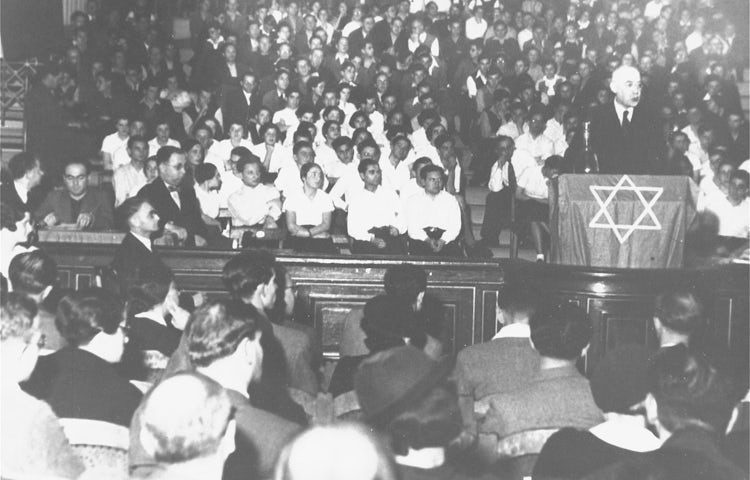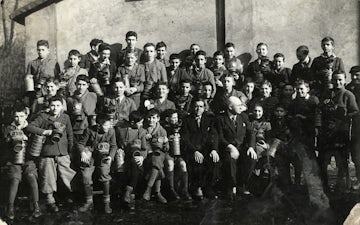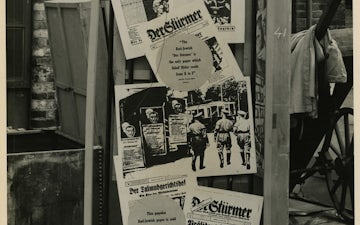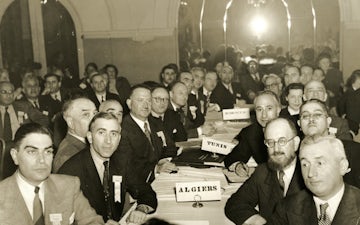
Rabbi Leo Baeck (1873-1956) was a German Reform rabbi who acted as the president of the Reichsvertretung der Juden in Deutschland (Central Organisation of Jews in Germany) from its creation in September 1933 to its dissolution in 1942. From 1942, Baeck was imprisoned in Theresienstadt (Terezín) where his lectures on history and philosophy, delivered from memory, provided comfort and reassurance despite the horrific circumstances. After liberation from Theresienstadt, he emigrated to Britain where he died in 1956.
A leading Reform rabbi, Baeck was the head of the German Reform movement and the chair of the Allgemeiner Deutscher Rabbinerverband (Cross-communal Association of German Rabbis), an organisation which included both liberal and orthodox rabbis. These positions, combined with his reputation for scholarship, judgement and integrity, made him the obvious choice to head the new Reichsvertretung from September 1933.
In 1942, he went with other German Jews to the ghetto-camp at Theresienstadt (Terezín where he performed the roles of teacher, rabbi and comforter, “a man of integrity, walking in the midst of utter evil”. After liberation, Baeck prevented the revenge killings of camp guards and ensured the health and comfort of the sick before accepting transport to England. He died in London in 1956.
Baeck’s motivation for remaining in Germany and accepting deportation as he did is hard to know for certain, but his writings and anecdotes give some idea. During the period 1933-1942, Baeck was arrested on at least five occasions. The first occasion was in 1935, when he wrote a prayer for Kol Nidre services (which begin observances for Yom Kippur), summarising not only his understanding of the situation of German Jewry but also an answer to that predicament, an answer that Baeck modelled throughout the Nazi era:
Our history is the history of the grandeur of the human soul and the dignity of human life. In this day of sorrow and pain, surrounded by infamy and shame, we will turn our eyes to the days of old. From generation to generation God redeemed our fathers, and he will redeem us in the days to come. We bow our heads before God and remain upright and erect before man. We know our way and we see the road to our goal.




